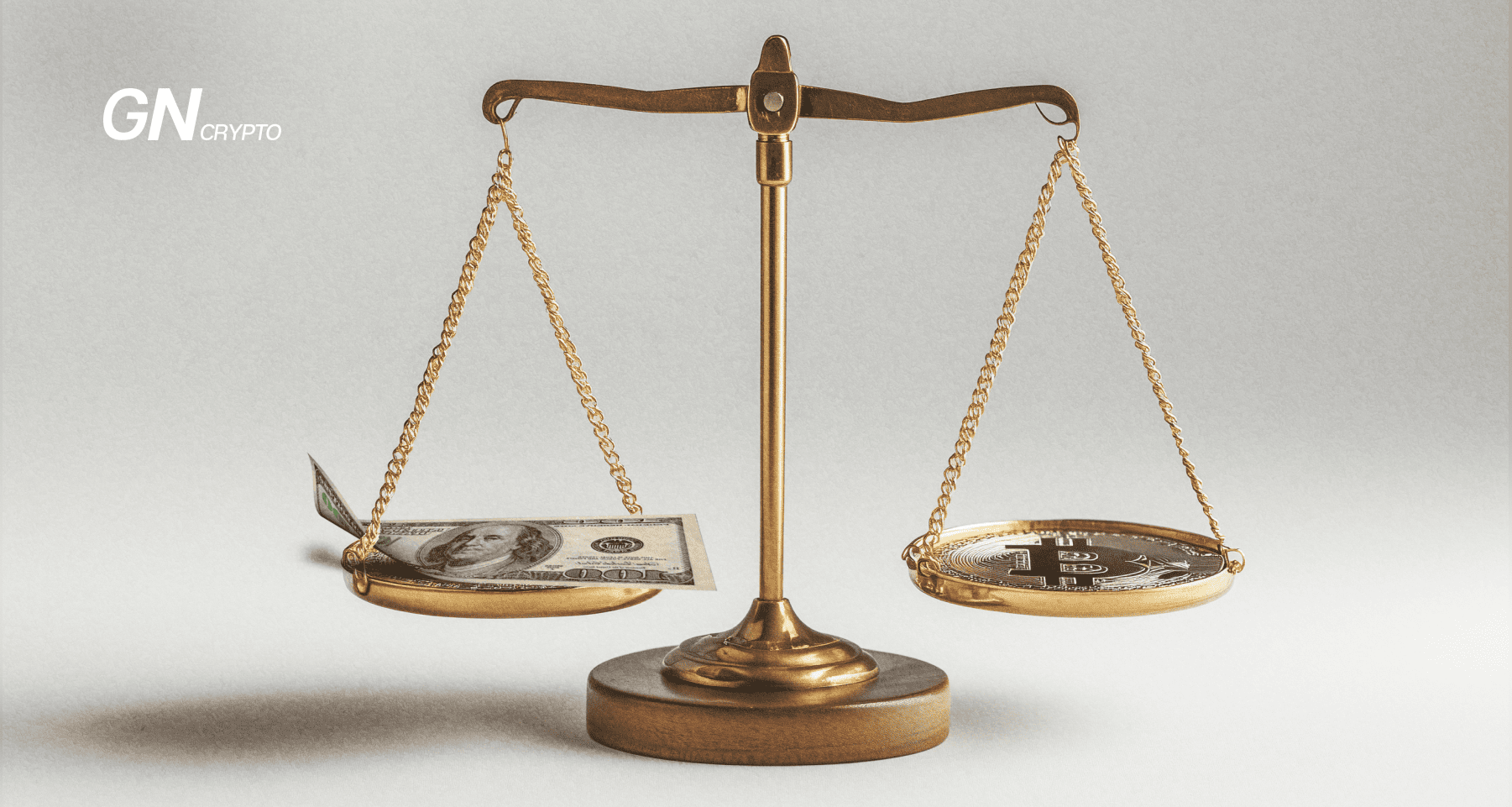How Does Cryptocurrency Differ from Traditional Cash?

As interest in cryptocurrencies soars, it’s worth understanding how they differ from the cash we’re used to. This article compares the two, examining their pros and cons, and ponders whether digital currencies can truly replace fiat.
On this page
Money is the backbone of the global economy, serving as the main instrument of exchange. It fulfills fundamental roles like determining the value of goods and services and preserving wealth over time.
As technology, particularly financial technology, continues to evolve, a new kind of money has emerged—cryptocurrency. This digital innovation has reshaped the landscape of traditional finance, presenting new possibilities for investments, seamless transactions, and economic dealings.
What exactly differentiates cryptocurrencies from fiat money, and why do they attract so much interest from modern investors, tech enterprises, and even governments?
Understanding Fiat Currency
Fiat currency is a legal tender whose value isn’t supported by physical commodities like gold or silver but is defined by governmental decree. Sometimes called fiduciary money, its worth relies entirely on trust—reflected in the Latin origin of the word “fiducia,” meaning “trust.”
The value of fiat money is built on faith in the issuer, generally the government, and the requirement that it be accepted for payments. Put simply, fiat currency includes the paper bills, coins, and digital bank balances we use daily.
Fiat currency allows for trade, valuation, and debt management. Governments issue this money, and central banks oversee its regulation. Trust in these institutions is what ensures the stability of fiat money in circulation and sustains economic harmony.
However, this system isn’t perfect, facing challenges like inflation, excessive money printing, centralization, and reliance on political decisions. To address these shortcomings, cryptocurrency was introduced as a decentralized alternative, bringing a new perspective to financial exchange and storage.
Let’s examine the key distinctions between these monetary systems.
Fiat Currency. Source: https://www.pexels.com/
Cryptocurrency: Explained
Cryptocurrency is a digital form of asset that leverages cryptography to secure transactions and manage the supply of new units. Unlike fiat currencies, cryptocurrencies are built on blockchain technology—a distributed ledger system that ensures unparalleled security and full transparency for every transaction.
With cryptocurrencies, users can make direct transfers without intermediaries, such as banks or global financial networks. They also serve as a versatile tool for investment, wealth storage, and other financial operations.
How Cryptocurrencies Differ from Fiat Money
These two types of financial instruments are built on entirely different principles and serve distinct purposes. Each has its own pros and cons, and understanding their functionality in diverse conditions is crucial.
Now, let’s dive into the major distinctions between them.
Issuers and Oversight
Traditional money is issued and managed by government bodies, particularly central banks, which regulate the money supply and employ tools like interest rate adjustments to maintain financial stability and control inflation.
Cryptocurrencies, such as Bitcoin, operate on a decentralized model with no central issuer. Instead, their circulation is managed by a network of nodes maintaining the blockchain. Bitcoin’s issuance is algorithmically fixed, with a maximum supply of 21 million coins. Mining, the process of generating new coins, becomes incrementally more difficult and will eventually end when the maximum supply is reached.
Printing of £10 sterling banknotes in England. Source: https://www.ft.com/
The Tangible and Intangible Sides of Money
Traditional currency can exist both as something you can touch—coins and banknotes—and as non-cash assets stored in bank accounts. Physical money comes with distinct material attributes, such as watermarks, holograms, or the tactile feel of a bank card used for cashless transactions.
In contrast, cryptocurrency exists exclusively in the digital realm. It has no physical manifestation and is entirely internet-based. Owners manage their cryptocurrencies through digital wallets, which may feel unfamiliar or inconvenient to those who prefer the material presence of cash.
Transactions: Time and Cost
Traditional banking systems can take days to process international transfers, relying on intermediaries like banks or payment services, which often add extra fees to the transaction.
Cryptocurrency offers a faster and more cost-effective alternative. Transactions are direct, peer-to-peer, and typically processed in minutes, with no dependency on the recipient’s location or third-party involvement.
The Role of Anonymity
In conventional financial systems, transactions are frequently subject to scrutiny by governmental bodies, banks, or other authorities. This system helps mitigate risks associated with money laundering, tax evasion, and criminal activities.
Cryptocurrencies, on the other hand, offer enhanced privacy, with transactions facilitated via the blockchain, an anonymous digital ledger. However, it’s essential to understand that cryptocurrencies are not completely anonymous. All transaction records are publicly available but do not include identifiable user details.
Related: No, Cryptocurrency is Not Anonymous: It is Pseudonymous
The details of all transactions are available on blockchain explorers. Source: solscan.io
Market Stability vs Volatility
Traditional currencies benefit from government regulation, which ensures a more stable value. Although inflation can erode purchasing power, central banks actively manage monetary policies to stabilize national currencies.
In contrast, cryptocurrency prices are highly volatile and prone to dramatic swings. Factors such as market sentiment, regulatory announcements, and global news can significantly impact their value. This makes cryptocurrencies risky for investors but enticing for traders seeking speculative gains.
How Bitcoin reacted to the announcement of U.S. presidential election results. Source: https://whitebit.com/
Will Cryptocurrency Ever Replace Fiat Money?
The debate over whether cryptocurrency can replace fiat money remains unresolved. Cryptocurrencies boast significant benefits: their supply is managed through mathematical algorithms, they enable instant, intermediary-free transactions, and they provide partial anonymity.
However, fiat money retains a critical role due to its stability, legal status, and deep integration into the global economy, making it essential for both businesses and governments. To become a viable replacement, cryptocurrencies need to overcome major technical and regulatory obstacles.
Each has unique advantages. Cryptocurrencies offer transparency and flexibility in financial operations but are prone to volatility and lack centralized oversight. Fiat money, by contrast, provides stability, legal guarantees, and state support.
Cryptocurrencies could evolve into a vital element of tomorrow’s financial systems, but this will only be possible with proper regulation and a clear understanding of their risks.
The content on The Coinomist is for informational purposes only and should not be interpreted as financial advice. While we strive to provide accurate and up-to-date information, we do not guarantee the accuracy, completeness, or reliability of any content. Neither we accept liability for any errors or omissions in the information provided or for any financial losses incurred as a result of relying on this information. Actions based on this content are at your own risk. Always do your own research and consult a professional. See our Terms, Privacy Policy, and Disclaimers for more details.





























